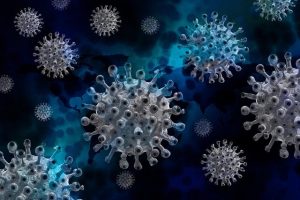By NewsDesk @bactiman63
On Wednesday, Russian health authorities reported a one-day record for COVID-19 related deaths with 1,028. This tops the previous high (1,015) recorded just yesterday.

The country reported 34,073 new coronavirus infections Tuesday, with the virus gaining ground in almost every part of the country. Over the past week alone the infection rate across the nation was up 15.5 percent.
Government officials, including President Vladimir Putin have become increasingly frustrated at Russians’ low uptake of the vaccine in recent weeks.
The government admitted not doing the best job at convincing the public; however, they say a more responsible position of citizens is also needed.
The increase in cases and deaths has prompted officials to consider a week-long lockdown. Russian President Vladimir Putin has supported the government’s decision to declare non-working days from October 30 to November 7 in light of the unfavorable epidemiological trends. The regions where the situation is the worst may do so earlier, starting from October 23.
Lastly, the Russian Ministry of Health has released an updated version of the Interim Guidelines for the Prevention, Diagnosis and Treatment of New Coronavirus Infection (COVID-19). The thirteenth version of the temporary guidelines was prepared by leading Russian experts taking into account the accumulated scientific data.
In the new version of the recommendations, the sections related to drug therapy have been updated: the possibilities of using monoclonal antibodies in the treatment of a new coronavirus infection have been clarified. Possibilities of interchangeability of drugs in treatment regimens are explained.
Thus, the updated version of the temporary guidelines provides information on new highly effective antiviral drugs – monoclonal antibodies. Their use in patients with risk factors for a severe course will neutralize the virus at an early stage and stop the unfavorable development of the disease. Also, drug therapy schemes have been improved at the outpatient stage, allowing early prevention of excessive inflammatory response.
The new version of the guidelines was sent to the regions for use in clinical practice.
- Israel: AY4.2 Delta variant detected
- Michigan reports 1st SARS-CoV-2 positive cat in Ingham County
- Colorado: Syphilis cases up 4 times in La Plata County
- San Diego reports more Shigella in the homeless
- Illinois: Coatimundi confirmed positive for SARS-CoV-2, 1st time in the US
- Ep. 001 Let’s Talk: Dr Judy Stone
- Measles in the DRC: More than 40K cases reported year to date

